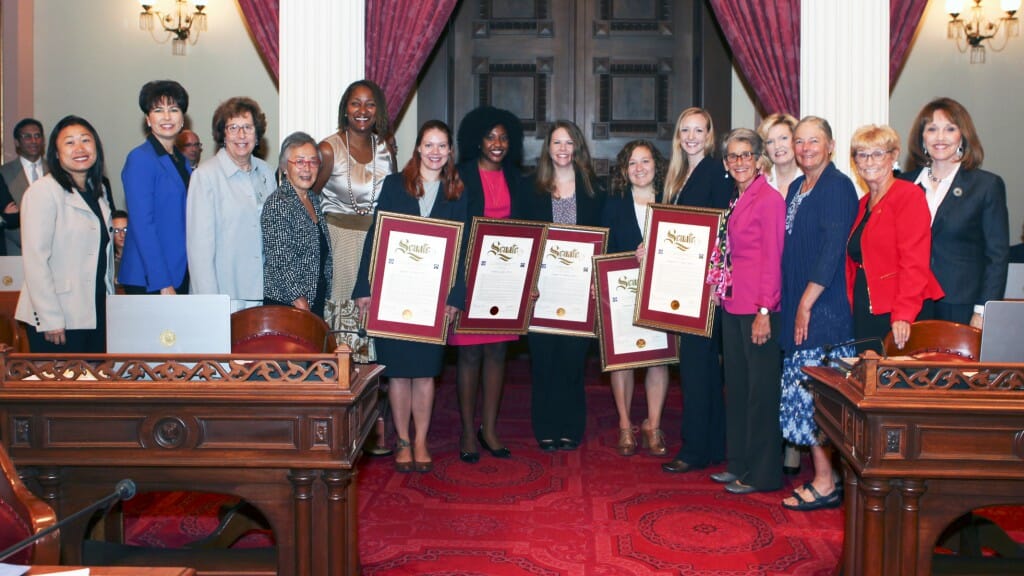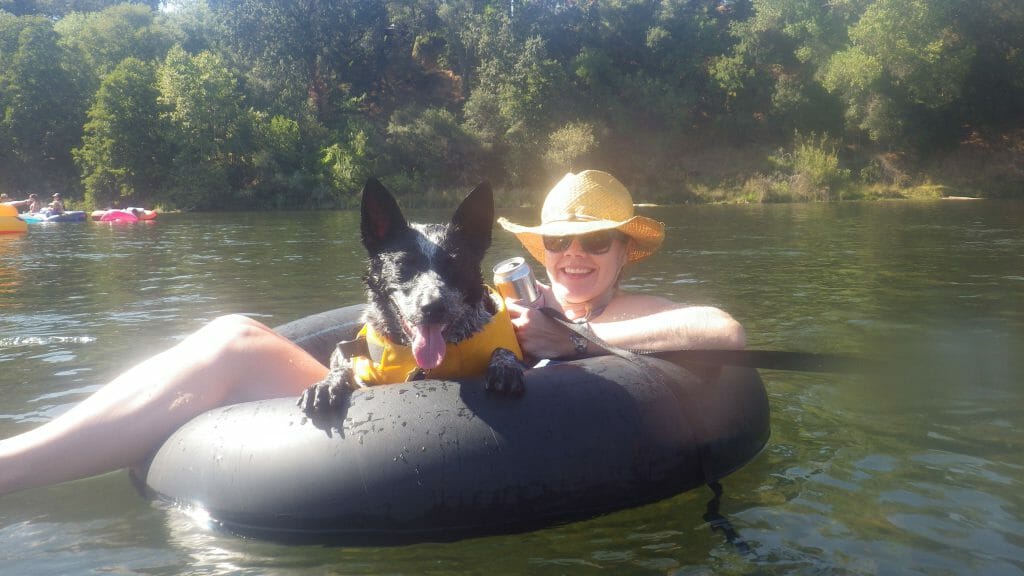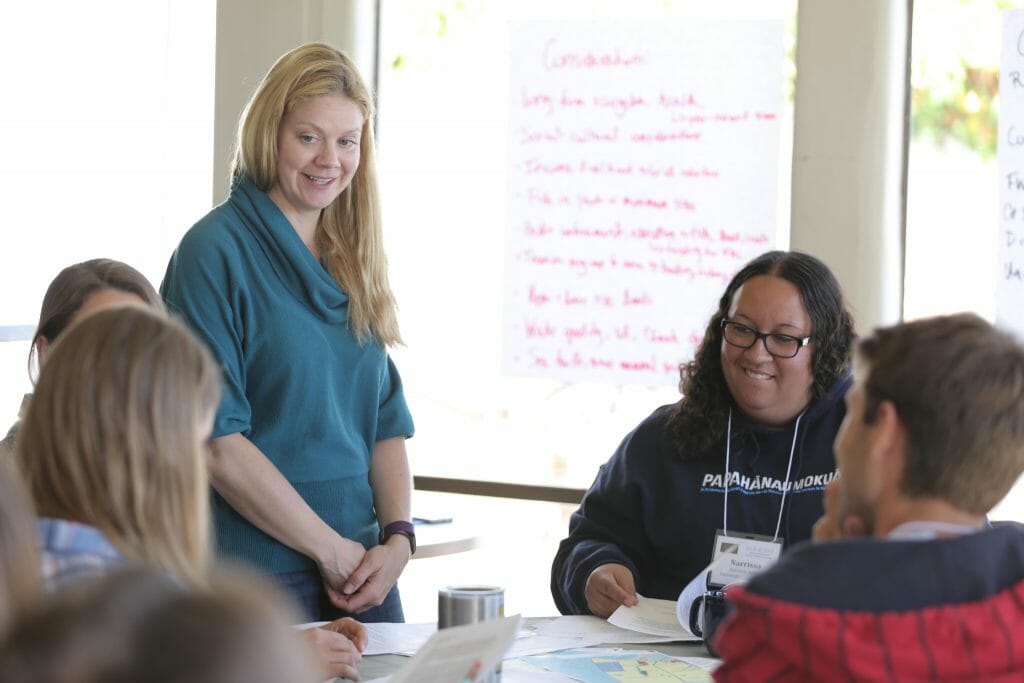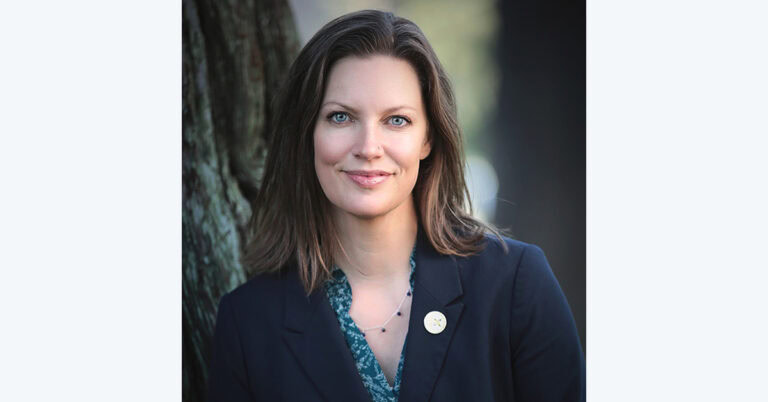Deputy Director
CCST Science Fellows Profile: Angee Doerr, PhD, Commander (USNR)
August 25, 2017 | CCST S&T Policy Fellows

Angee Doerr, PhD, was a CCST Science & Technology Policy Fellow in 2015 and spent her CCST year placed with the California State Senate Committee on Natural Resources and Water. She came to the Legislature with her PhD in Ecology from UC Davis, an MBA from American Military University, and a BS from Duke University. In addition to her duties as an officer in the U.S. Navy Reserve, Doerr is currently a Research Scholar at the Center for Ocean Solutions — an interdisciplinary science and policy organization based in Monterey, California, and Stanford University — where she focuses on marine resources policy at the intersection of human and natural systems.
Q: Why did you originally decide to seek out a policy fellowship experience?
A: For my dissertation work, I focused on creating socially and ecologically sustainable policy solutions for the spiny lobster fishery in The Bahamas. In addition, I taught several environmental policy courses. However, my work was largely academic or theoretical in nature. I really wanted to understand how policy worked on “the other side” — what decision-makers do with scientific research such as mine, and how it is used to inform the creation of new policies.
Q: Think back to your first month as a CCST Science Fellow. How did you feel during that first month of “policy boot camp” trainings and meeting your new colleagues?
A: Going into policy boot camp, I assumed I’d have a leg up. Although my PhD was in ecology, I’d had significant policy experience through courses I’d taken, courses I’d taught or TA’ed, and through my dissertation research. However, I soon realized that my knowledge of California and the California political system was pretty lacking, and that understanding political theory was not the same as being a part of political practice. As for my colleagues, I admit to being a bit intimidated by everyone else’s experience and drive, but quickly realized just how amazing they all were, and how lucky I was to have them for a cohort.
Q: What, in your experience, was the most surprising aspect about participating in the lawmaking process and working with policymakers?
A: Although it no longer surprises me, I do think I was initially taken aback by just how much “politics” played into “policy.” I was surprised when policymakers made decisions based on relationships, or for other reasons, rather than simply based on the evidence. However, I was also really grateful to learn why that is, and be reassured that many, if not most, policymakers were in it for the right reasons — they genuinely wanted to help Californians and our state, even if they had different opinions on how to best accomplish that.
Q: Did you find that your professional skills and instincts grew as the fellowship year went on? Were the CCST trainings and events helpful to your professional development?
A: Absolutely. The first few months were not entirely intimidating, because my office (Senate Natural Resources and Water) was very supportive of me, but I definitely felt like I was in over my head for a while. The idea that I was going to be responsible for analyzing a bill, and that analysis would be part of the public record, and that Senators and eventually Assemblymembers would be making decisions based on my analysis — well, that was pretty heavy, and still feels really awesome.

Q: What’s it like networking and working as a professional policymaker in the capital of the State of California?
A: It’s fun. It’s exciting. It’s challenging. Every day is different. Some days you’re sitting at a table with your Senator helping to revise a bill or create policy. Other days you’re meeting with constituents regarding upcoming legislative votes. Still other days you’re in deep, reading statues in the legal Code, trying to figure out how a proposed bill is going to impact Californians throughout the state.
Q: What are some of your favorite memories or proudest accomplishments from your fellowship year? What were some of the most challenging moments or lessons learned?
A: Honestly, a lot of my favorite memories are of my cohort. I consider them my friends, and I loved seeing everyone grow and change and get married and have babies and find jobs. I still have the photo of our fellowship’s Senate floor recognition on my desk in my new office. I’m also proud of how I conducted myself in meetings with individuals who met with me regarding legislation; I took them seriously, listened to their advice or concerns, followed up with them when appropriate, and tried to learn something from those meetings.
As for lessons learned, I learned so much about the different factors that go into making policy. It’s not just about the science, or the people, or the economics — it’s a combination of all of those, and more, and it’s important not to oversimplify an issue, if you really want to change how it’s managed or regulated.
Q: What did you come to love and appreciate during your year living in Sacramento or living in California?
A: I loved Midtown; I loved living in the Lavender Heights neighborhood. I lived in a little quad house with amazing neighbors that are still my friends. I loved being able to bike or walk to so many great restaurants and bars and dance clubs.

Q: Do you feel like you’ve made a difference?
A: Whether I’ve made a difference during my fellowship year is not for me to say, but I do feel equipped to make a difference in my science policy work for the rest of my career.
Q: How has being a CCST Science Fellow impacted the trajectory of your career?
A: I would not have gotten the job I have now without that experience — my current office was very excited about my experience in policy, and how that knowledge allows me to better design science-based management solutions.
Q: What is your advice for scientists and engineers who want to apply their science to inform public policy?
A: Work with the staff of policymakers, and with the appropriate committees. Figure out who — the agency, office of research, committee staff, etc. — is doing the ground work on the issue you work on or are trying to engage with, and reach out to them. Also, send comment letters!

Q: What do you think is the role of science in policymaking and, more broadly, in government?
A: I think policy should be informed by science, with the caveat that science is not, and seldom should be, the lone input into a given policy decision. Policy should be based on sound science, and sound economics, and sound policy outcomes, and sound cultural inputs, etc. And sometimes incorporating all of these things means compromise — which scientists are not always great at, but should work on.
Q: Would you recommend the CCST Science Fellows program to a prospective applicant? Why?
A: 100 percent! I loved the fellowship, and I think it’s a huge benefit towards understanding policy, the policy process, how decisions get made, how policy gets implemented, and how science can and should be used in the decision-making process. Plus, it’s fun! And challenging. And rewarding. “Five out of Five Stars” — I would do it again.

The CCST Science & Technology Policy Fellowship trains scientific thinkers to be policy-savvy, while helping equip California’s lawmakers with science-savvy staff. Follow updates from the CCST Science Fellows on Facebook at facebook.com/ccstfellows and on Twitter @CCSTFellows. Explore the CCST Science & Technology Policy Fellowship here.
Find the California Council on Science and Technology on Facebook at facebook.com/ccstorg, on Twitter @CCSTorg, and on LinkedIn. Learn more about CCST at www.ccst.us.




